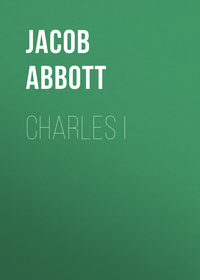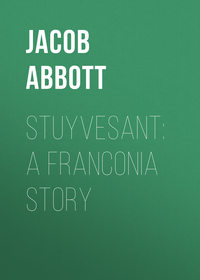
William the Conqueror
His spies.
Their report.
After surveying thus, as long as they desired to do so, the situation and extent of William's encampment, Harold's party returned to their own lines, still determined to make a stand there against the invaders, but feeling great doubt and despondency in respect to the result. Harold sent over, too, in the course of the day, some spies. The men whom he employed for this purpose were Normans by birth, and they could speak the French language. There were many Normans in England, who had come over in King Edward's time. These Norman spies could, of course, disguise themselves, and mingle, without attracting attention, among the thousands of workmen and camp followers that were going and coming continually around the grounds which William's army occupied. They did this so effectually, that they penetrated within the encampment without difficulty, examined every thing, and, in due time, returned to Harold with their report. They gave a formidable account of the numbers and condition of William's troops. There was a large corps of bowmen in the army, which had adopted a fashion of being shaven and shorn in such a manner that the spies mistook them for priests. They told Harold, accordingly, on their return, that there were more priests in William's camp than there were soldiers in all his army.
William's embassadors.
Their propositions.
During this eventful day, William too sent a body of horsemen across the country which separated the two encampments, though his emissaries were not spies, but embassadors, with propositions for peace. William had no wish to fight a battle, if what he considered as rightfully his kingdom could be delivered to him without it; and he determined to make one final effort to obtain a peaceable surrender of it, before coming to the dreadful resort of an appeal to arms. He accordingly sent his embassy with three propositions to make to the English king. The principal messenger in this company was a monk, whose name was Maigrot. He rode, with a proper escort and a flag of truce, to Harold's lines. The propositions were these, by accepting either of which the monk said that Harold might avoid a battle. 1. That Harold should surrender the kingdom to William, as he had solemnly sworn to do over the sacred relics in Normandy. 2. That they should both agree to refer the whole subject of controversy between them to the pope, and abide by his decision. 3. That they should settle the dispute by single combat, the two claimants to the crown to fight a duel on the plain, in presence of their respective armies.
William's propositions unreasonable.
Harold declines them.
It is obvious that Harold could not accept either of these propositions. The first was to give up the whole point at issue. As for the second, the pope had already prejudged the case, and if it were to be referred to him, there could be no doubt that he would simply reaffirm his former decision. And in respect to single combat, the disadvantage on Harold's part would be as great in such a contest as it would be in the proposed arbitration. He was himself a man of comparatively slender form and of little bodily strength. William, on the other hand, was distinguished for his size, and for his extraordinary muscular energy. In a modern combat with fire-arms these personal advantages would be of no avail, but in those days, when the weapons were battle-axes, lances, and swords, they were almost decisive of the result. Harold therefore declined all William's propositions, and the monk returned.
Further proposals of William.
Counter proposal of Harold.
William seems not to have been wholly discouraged by this failure of his first attempt at negotiation, for he sent his embassage a second time to make one more proposal. It was, that if Harold would consent to acknowledge William as King of England, William would assign the whole territory to him and to his brother Gurth, to hold as provinces, under William's general sway. Under this arrangement William would himself return to Normandy, making the city of Rouen, which was his capital there, the capital of the whole united realm. To this proposal Harold replied, that he could not, on any terms, give up his rights as sovereign of England. He therefore declined this proposal also. He, however, now made a proposition in his turn. He was willing, he said, to compromise the dispute, so far as it could be done by the payment of money. If William would abandon his invasion and return to Normandy, giving up his claims to the English crown, he would pay him, he said, any sum of money that he would name.
William could not accept this proposal. He was, as he believed, the true and rightful heir to the throne of England, and there was a point of honor involved, as well as a dictate of ambition to be obeyed, in insisting on the claim. In the mean time, the day had passed, while these fruitless negotiations had been pending. Night was coming on. William's officers and counselors began to be uneasy at the delay. They said that every hour new re-enforcements were coming into Harold's camp, while they themselves were gaining no advantage, and, consequently, the longer the battle was delayed, the less was the certainty of victory. So William promised them that he would attack King Harold in his camp the very next morning.
Harold's forebodings.
Proposals of his brothers.
Night before the battle.
As the time for the great final struggle drew near, Harold's mind was oppressed more and more with a sense of anxiety and with foreboding fears. His brothers, too, were ill at ease. Their solicitude was increased by the recollection of Harold's oath, and of the awful sanctions with which they feared the sacred relics might have invested it. They were not sure that their brother's excuse for setting it aside would save him from the guilt and curse of perjury in the sight of Heaven. So they proposed, on the eve of the battle, that Harold himself should retire, and leave them to conduct the defense. "We can not deny," they said, "that you did take the oath; and, notwithstanding the circumstances which seem to absolve you from the obligation, it is best to avoid, if possible, the open violation of it. It will be better, on the whole, for you to leave the army and go to London. You can aid very effectually in the defense of the kingdom by raising re-enforcements there. We will stay and encounter the actual battle. Heaven can not be displeased with us for so doing, for we shall be only discharging the duty incumbent on all, of defending their native land from foreign invasion."
Harold would not consent to adopt this plan. He could not retire himself, he said, at the hour of approaching danger, and leave his brothers and his friends exposed, when it was his crown for which they were contending.
Scenes in Harold's camp.
Such were the circumstances of the two armies on the evening before the battle; and, of course, in such a state of things, the tendency of the minds of men would be, in Harold's camp, to gloom and despondency, and in William's, to confidence and exultation. Harold undertook, as men in his circumstances often do, to lighten the load which weighed upon his own heart and oppressed the spirits of his men, by feasting and wine. He ordered a plentiful supper to be served, and supplied his soldiers with abundance of drink; and it is said that his whole camp exhibited, during the whole night, one wide-spread scene of carousing and revelry, the troops being gathered every where in groups around their camp fires, some half stupefied, others quarreling, and others still singing national songs, and dancing with wild excitement, according to the various effects produced upon different constitutions by the intoxicating influence of beer and wine.
Scenes in William's camp.
In William's camp there were witnessed very different scenes. There were a great many monks and ecclesiastics in the train of his army, and, on the night before the battle, they spent the time in saying masses, reading litanies and prayers, chanting anthems, and in other similar acts of worship, assisted by the soldiers, who gathered, in great congregations, for this wild worship, in the open spaces among the tents and around the camp fires. At length they all retired to rest, feeling an additional sense of safety in respect to the work of the morrow by having, as they supposed, entitled themselves, by their piety, to the protection of Heaven.
Religious ceremonies.
A martial bishop.
In the morning, too, in William's camp, the first thing done was to convene the army for a grand celebration of mass. It is a curious illustration of the mingling of the religious, or, perhaps, we ought rather to say, the superstitious sentiment of the times, with the spirit of war, that the bishop who officiated in this solemn service of the mass wore a coat of mail under his pontifical attire, and an attendant stood by his side, while he was offering his prayers, with a steel-pointed spear in his hand, ready for the martial prelate to assume as soon as the service should be ended. Accordingly, when the religious duty was performed, the bishop threw off his surplice, took his spear, and mounting his white charger, which was also all saddled and bridled beside him, he headed a brigade of horse, and rode on to the assault of the enemy.
William's war-horse.
Preliminary arrangements.
William himself mounted a very magnificent war-horse from Spain, a present which he had formerly received from one of his wealthy barons. The name of the horse was Bayard. From William's neck were suspended some of the most sacred of the relics over which Harold had taken his false oath. He imagined that there would be some sort of charm in them, to protect his life, and to make the judgment of Heaven more sure against the perjurer. The standard which the pope had blessed was borne by his side by a young standard bearer, who was very proud of the honor. An older soldier, however, on whom the care of this standard officially devolved, had asked to be excused from carrying it. He wished, he said, to do his work that day with the sword. While making these preliminary arrangements for going into battle, William, with the party around him, stood upon a gentle eminence in the middle of the camp, and in sight of the whole army. Every one was struck with admiration at the splendid figure which their commander made—his large and well-formed limbs covered with steel, and his horse, whose form was as noble as that of his master, prancing restlessly, as if impatient for the battle to begin.
Battle of Hastings.
Defeat of Harold.
When all were ready, the Norman army advanced gayly and joyously to attack the English lines; but the gayety and joyousness of the scene soon disappeared, as corps after corps got fairly engaged in the awful work of the day. For ten long hours there reigned over the whole field one wide-spread scene of havoc and death—every soul among all those countless thousands delivered up to the supreme dominion of the most dreadful passions, excited to a perfect phrensy of hatred, rage, and revenge, and all either mercilessly killing others, or dying themselves in agony and despair. When night came, the Normans were every where victorious. They were in full possession of the field, and they rode triumphantly to and fro through Harold's camp, leaping their horses over the bodies of the dead and dying which covered the ground. Those of King Harold's followers that had escaped the slaughter of the day fled in hopeless confusion toward the north, where the flying masses strewed the roads for miles with the bodies of men who sank down on the way, spent with wounds or exhausted by fatigue.
He is slain.
In the morning, William marshaled his men on the field, and called over the names of the officers and men, as they had been registered in Normandy, for the purpose of ascertaining who were killed. While this melancholy ceremony was going on, two monks came in, sent from the remains of the English army, and saying that King Harold was missing, and that it was rumored that he had been slain. If so, his body must be lying somewhere, they said, upon the field, and they wished for permission to make search for it. The permission was granted. With the aid of some soldiers they began to explore the ground, turning over and examining every lifeless form which, by the dress or the armor, might seem to be possibly the king's. Their search was for a long time vain; the ghastly faces of the dead were so mutilated and changed that nobody could be identified. At length, however, a woman who had been in Harold's family, and knew his person more intimately than they, found and recognized the body, and the monks and the soldiers carried it away.
Final subjugation of the island.
William crowned at Westminster.
William's power.
His greatness.
The battle of Hastings sealed and settled the controversy in respect to the English crown. It is true that the adherents of Harold, and also those of Edgar Atheling, made afterward various efforts to rally their forces and recover the kingdom, but in vain. William advanced to London, fortified himself there, and made excursions from that city as a centre until he reduced the island to his sway. He was crowned at length, at Westminster Abbey, with great pomp and parade. He sent for Matilda to come and join him, and instated her in his palace as Queen of England. He confiscated the property of all the English nobles who had fought against him, and divided it among the Norman chieftains who had aided him in the invasion. He made various excursions to and from Normandy himself, being received every where throughout his dominions, on both sides the Channel, with the most distinguished honors. In a word, he became, in the course of a few years after he landed, one of the greatest and most powerful potentates on the globe. How far all his riches and grandeur were from making him happy, will appear in the following chapter.
Chapter XI.
Prince Robert's Rebellion
A.D. 1076-1077Ambitious men, who devote their time and attention, through all the early years of life, to their personal and political aggrandizement, have little time to appropriate to the government and education of their children, and their later years are often embittered by the dissipation and vice, or by the unreasonable exactions of their sons. At least it was so in William's case. By the time that his public enemies were subdued, and he found himself undisputed master both of his kingdom and his duchy, his peace and happiness were destroyed, and the tranquillity of his whole realm was disturbed by a terrible family quarrel.
William's oldest son.
His character.
The name of his oldest son was Robert. He was fourteen years old when his father set off on his invasion of England. At that time he was a sort of spoiled child, having been his mother's favorite, and, as such, always greatly indulged by her. When William went away, it will be recollected that he appointed Matilda regent, to govern Normandy during his absence. This boy was also named in the regency, so that he was nominally associated with his mother, and he considered himself, doubtless, as the more important personage of the two. In a word, while William was engaged in England, prosecuting his conquests there, Robert was growing up in Normandy a vain, self-conceited, and ungovernable young man.
William's conflicts with his son Robert.
William Rufus.
His father, in going back and forth between England and Normandy, often came into conflict with his son, as usual in such cases. In these contests Matilda took sides with the son. William's second son, whose name was William Rufus, was jealous of his older brother, and was often provoked by the overbearing and imperious spirit which Robert displayed. William Rufus thus naturally adhered to the father's part in the family feud. William Rufus was as rough and turbulent in spirit as Robert, but he had not been so indulged. He possessed, therefore, more self-control; he knew very well how to suppress his propensities, and conceal the unfavorable aspects of his character when in the presence of his father.
William's son Henry.
Robert nicknamed Short Boots.
There was a third brother, named Henry. He was of a more quiet and inoffensive character, and avoided taking an active part in the quarrel, except so far as William Rufus led him on. He was William Rufus's friend and companion, and, as such, Robert considered him as his enemy. All, in fact, except Matilda, were against Robert, who looked down, in a haughty and domineering manner—as the oldest son and heir is very apt to do in rich and powerful families—upon the comparative insignificance of his younger brethren. The king, instead of restraining this imperious spirit in his son, as he might, perhaps, have done by a considerate and kind, and, at the same time, decisive exercise of authority, teased and tormented him by sarcasms and petty vexations. Among other instances of this, he gave him the nickname of Short Boots, because he was of inferior stature. As Robert was, however, at this time of full age, he was stung to the quick at having such a stigma attached to him by his father, and his bosom burned with secret sentiments of resentment and revenge.
Robert's betrothment.
William's motives.
He had, besides, other causes of complaint against his father, more serious still. When he was a very young child, his father, according to the custom of the times, had espoused him to the daughter and heiress of a neighboring earl, a child like himself. Her name was Margaret. The earldom which this little Margaret was to inherit was Maine. It was on the frontiers of Normandy, and it was a rich and valuable possession. It was a part of the stipulation of the marriage contract that the young bride's domain was to be delivered to the father of the bridegroom, to be held by him until the bridegroom should become of age, and the marriage should be fully consummated. In fact, the getting possession of this rich inheritance, with a prospect of holding it so many years, was very probably the principal end which William had in view in contracting for a matrimonial union so very premature.
Death of Margaret.
If this was, in reality, William's plan, it resulted, in the end, even more favorably than he had anticipated; for the little heiress died a short time after her inheritance was put into the possession of her father-in-law. There was nobody to demand a restoration of it, and so William continued to hold it until his son, the bridegroom, became of age. Robert then demanded it, contending that it was justly his. William refused to surrender it. He maintained that what had passed between his son in his infancy, and the little Margaret, was not a marriage, but only a betrothment—a contract for a future marriage, which was to take place when the parties were of age—that, since Margaret's death prevented the consummation of the union, Robert was never her husband, and could not, consequently, acquire the rights of a husband. The lands, therefore, ought manifestly, he said, to remain in the hands of her guardian, and whatever rights any other persons might have, claiming to succeed Margaret as her natural heirs, it was plain that his son could have no title whatever.
More trouble.
However satisfactory this reasoning might be to the mind of William, Robert was only exasperated by it. He looked upon the case as one of extreme injustice and oppression on the part of his father, who, not content, he said, with his own enormous possessions, must add to them by robbing his own son. In this opinion Robert's mother, Matilda, agreed with him. As for William Rufus and Henry, they paid little attention to the argument, but were pleased with the result of it, and highly enjoyed their brother's vexation and chagrin in not being able to get possession of his earldom.
Robert's political power.
His ambition.
There was another very serious subject of dispute between Robert and his father. It has already been stated, that when the duke set out on his expedition for the invasion of England, he left Matilda and Robert together in charge of the duchy. At the commencement of the period of his absence Robert was very young, and the actual power rested mainly in his mother's hands. As he grew older, however, he began to exercise an increasing influence and control. In fact, as he was himself ambitious and aspiring, and his mother indulgent, the power passed very rapidly into his hands. It was eight years from the time that William left Normandy before his power was so far settled and established in England that he could again take the affairs of his original realm into his hands. He had left Robert, at that time, a mere boy of fourteen, who, though rude and turbulent in character, was still politically powerless. He found him, on his return, a man of twenty-two, ruder and more turbulent than before, and in the full possession of political power. This power, too, he found him very unwilling to surrender.
Robert claims Normandy.
William refuses it.
In fact, when William came to receive back the province of Normandy again, Robert almost refused to surrender it. He said that his father had always promised him the duchy of Normandy as his domain so soon as he should become of age, and he claimed now the fulfillment of this promise. Besides, he said that, now that his father was King of England, his former realm was of no consequence to him. It did not add sensibly to his influence or his power, and he might, therefore, without suffering any sensible loss himself, grant it to his son. William, on his part, did not acknowledge the force of either of these arguments. He would not admit that he had ever promised Normandy to his son; and as to voluntarily relinquishing any part of his possessions, he had no faith in the policy of a man's giving up his power or his property to his children until they were justly entitled to inherit it by his death; at any rate, he should not do it. He had no idea, as he expressed it, "of putting off his clothes before he was going to bed."
The irritation and ill-will which these dissensions produced grew deeper and more inveterate every day, though the disagreement had been thus far a private and domestic dispute, confined, in its influence, to the king's immediate household. An occasion, however, now occurred, on which the private family feud broke out into an open public quarrel. The circumstances were these:
Castle at L'Aigle.
Quarrel between Robert and William Rufus.
King William had a castle in Normandy, at a place called L'Aigle. He was spending some time there, in the year 1076, with his court and family. One day William Rufus and Henry were in one of the upper apartments of the castle, playing with dice, and amusing themselves, in company with other young men of the court, in various ways. There was a window in the apartment leading out upon a balcony, from which one might look down upon the court-yard of the castle below. Robert was in this court-yard with some of his companions, walking there in an irritated state of mind, which had been produced by some previous disputes with his brothers. William Rufus looked down from the balcony and saw him, and by way, perhaps, of quenching his anger, poured some water down upon him. The deed changed the suppressed and silent irritation in Robert's heart to a perfect phrensy of rage and revenge. He drew his sword and sprang to the stair-case. He uttered loud and terrible imprecations as he went, declaring that he would kill the author of such an insult, even if he was his brother. The court-yard was, of course, immediately filled with shouts and exclamations of alarm, and every body pressed forward toward the room from which the water had been thrown, some to witness, and some to prevent the affray.
The combatants parted.
The king himself, who happened to be in that part of the castle at the time, was one of the number. He reached the apartment just in time to interpose between his sons, and prevent the commission of the awful crime of fratricide. As it was, he found it extremely difficult to part the ferocious combatants. It required all his paternal authority, and not a little actual force, to arrest the affray. He succeeded, however, at length, with the help of the by-standers, in parting his sons, and Robert, out of breath, and pale with impotent rage, was led away.









